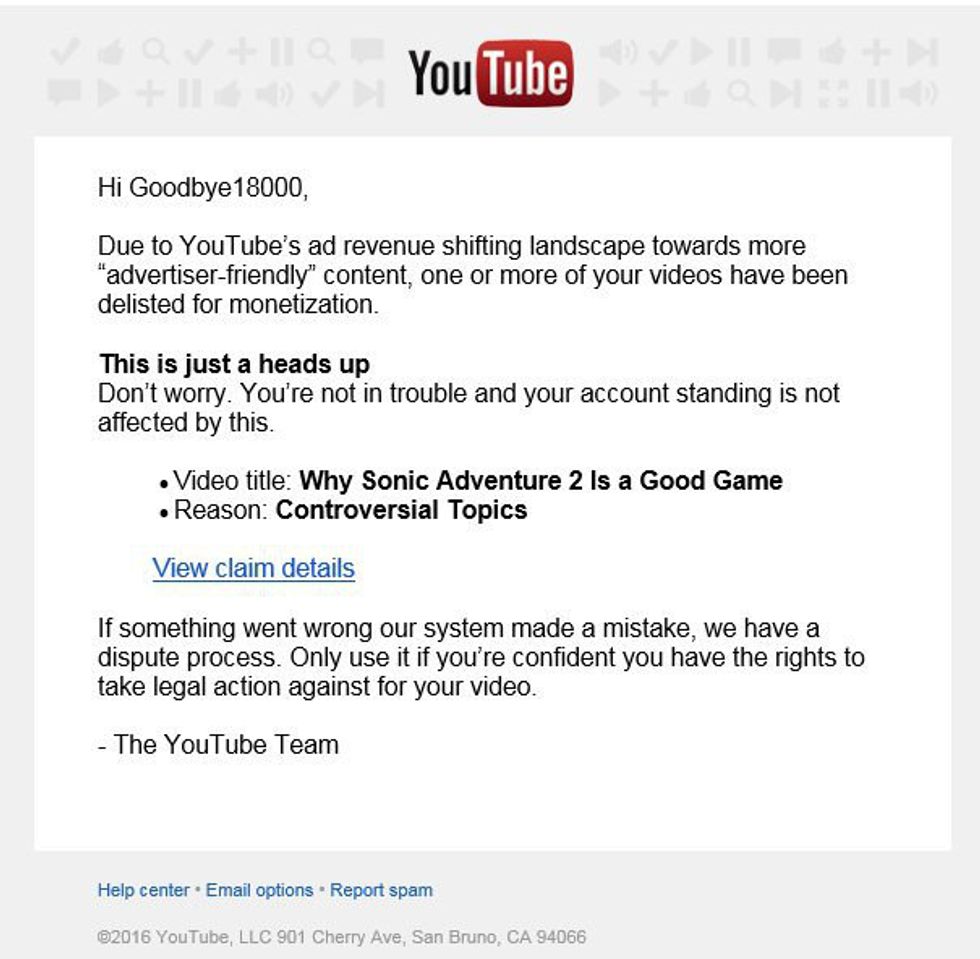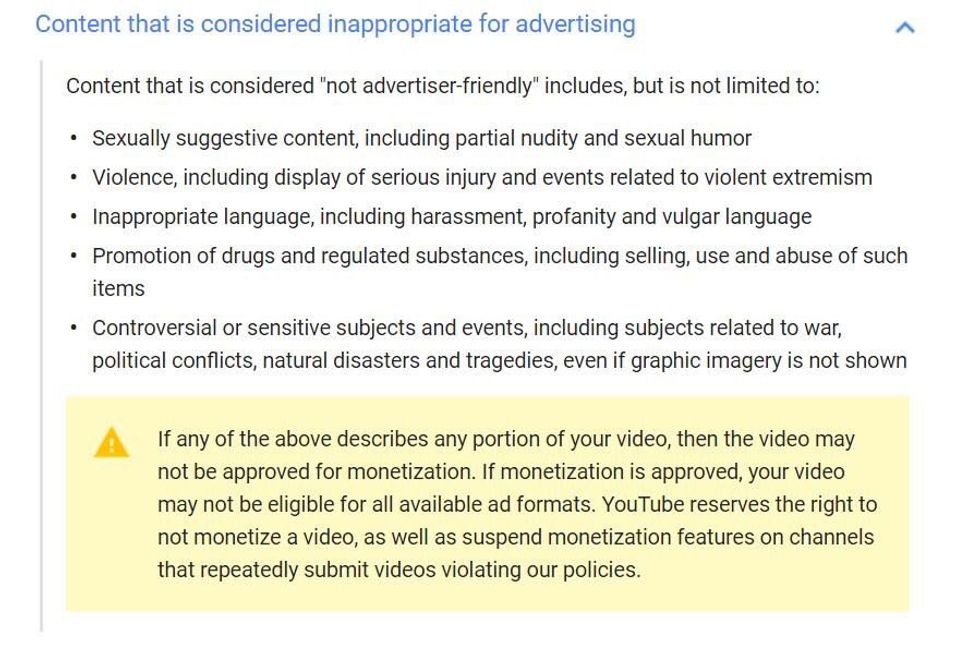Recently in the YouTube universe, many content creators have found that they are now unable to monetize certain videos after the platform updates its criteria for advertising.
The video-sharing site has not altered or added new rules to its policy, however, changes have been made to the way content creators receive notifications - they will now receive emails about videos that have been demonetized.
According to the Irish Examiner, a YouTube spokesman reported in a statement, "While our policy of demonetizing videos due to advertiser-friendly concerns hasn’t changed, we’ve recently improved the notification and appeal process to ensure better communication."
Previously, content creators had to go into a specific video's data analytics to see if the video had been demonetized or not. YouTube is attempting to bring this information directly to creators and is making the issue of monetization clearer.
However, some of the YouTube community, including Philip DeFranco and Jenna Marbles, are arguing that this is the beginning of the censorship of the website and what creators are allowed to put out onto the Internet. The issue of demonetization began with DeFranco when many of his videos became monetized and had advertising taken away.
This is becoming a rising issue for YouTube stars who earn money and make a living off of creating content on the media platform. When advertising is taken away, income for YouTube content creators is taken away as well.
After posting his video, DeFranco became aware of the fact that his advertising revenue for that video, among others, had been removed. In a follow-up video, DeFranco addressed this issue and declared that, "Taking away the monetization is a form of censorship." He believes that a certain language and discussion of topics he covered in his videos could have led to the monetization and flagging issues since they are not advertiser-friendly or appropriate.
This, then, raised the issue of what exactly is advertiser-friendly in the YouTube community:
YouTube’s policy states that content is advertiser-friendly if it is appropriate for all audiences of all ages. Inappropriate language, harassment, swearing and vulgar language is considered inappropriate for advertising.
Other forms of content which are declared unfriendly to advertisers include sexual humor, partial nudity, violence, the promotion of drugs and the discussion of topics related to "war, political conflicts, natural disasters and tragedies, even if graphic imagery is not shown."
There are ways to go about appealing the demonetization of a video with the new notification process. There are three specific changes being made to said process: There will be a "$" icon in video manager that deems a video "not advertiser-friendly" to let content creators know when a video has been demonetized. YouTubers will, also, receive an email stating that their advertisement revenue has been suspended. Finally, if creators are not pleased with YouTube's decision, they can appeal to get their content reviewed.
Now that YouTube is dictating what content that creators can post to the platform, many viewers and creators are claiming that this is now a censorship issue. Advertisers taking revenue away from creators who earn income from advertisements being shown on their videos, also, makes many YouTubers' careers suffer. This is not a simple policy clarification, but an issue for what people are allowed to speak about.


























